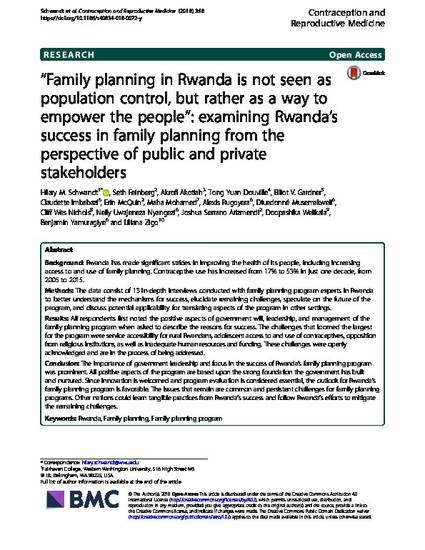
- Rwanda,
- Family planning,
- Family planning program
Background: Rwanda has made significant strides in improving the health of its people, including increasing access to and use of family planning. Contraceptive use has increased from 17% to 53% in just one decade, from 2005 to 2015.
Methods: The data consist of 13 in-depth interviews conducted with family planning program experts in Rwanda to better understand the mechanisms for success, elucidate remaining challenges, speculate on the future of the program, and discuss potential applicability for translating aspects of the program in other settings.
Results: All respondents first noted the positive aspects of government will, leadership, and management of the family planning program when asked to describe the reasons for success. The challenges that loomed the largest for the program were service accessibility for rural Rwandans, adolescent access to and use of contraceptives, opposition from religious institutions, as well as inadequate human resources and funding. These challenges were openly acknowledged and are in the process of being addressed.
Conclusion: The importance of government leadership and focus in the success of Rwanda’s family planning program was prominent. All positive aspects of the program are based upon the strong foundation the government has built and nurtured. Since innovation is welcomed and program evaluation is considered essential, the outlook for Rwanda’s family planning program is favorable. The issues that remain are common and persistent challenges for family planning programs. Other nations could learn tangible practices from Rwanda’s success and follow Rwanda’s efforts to mitigate the remaining challenges
Available at: http://works.bepress.com/hilary_schwandt/74/
